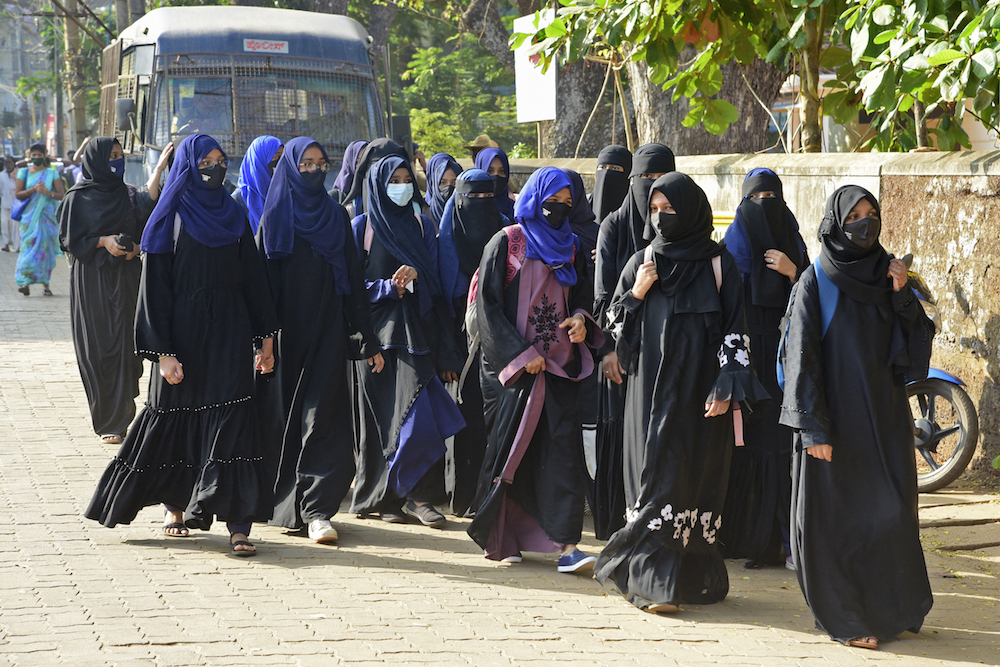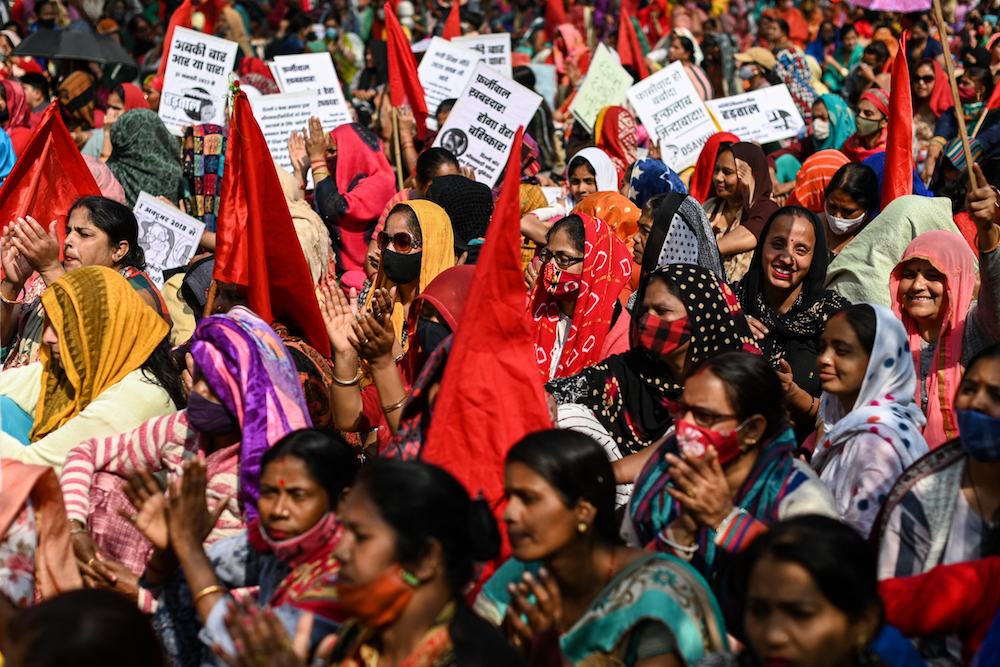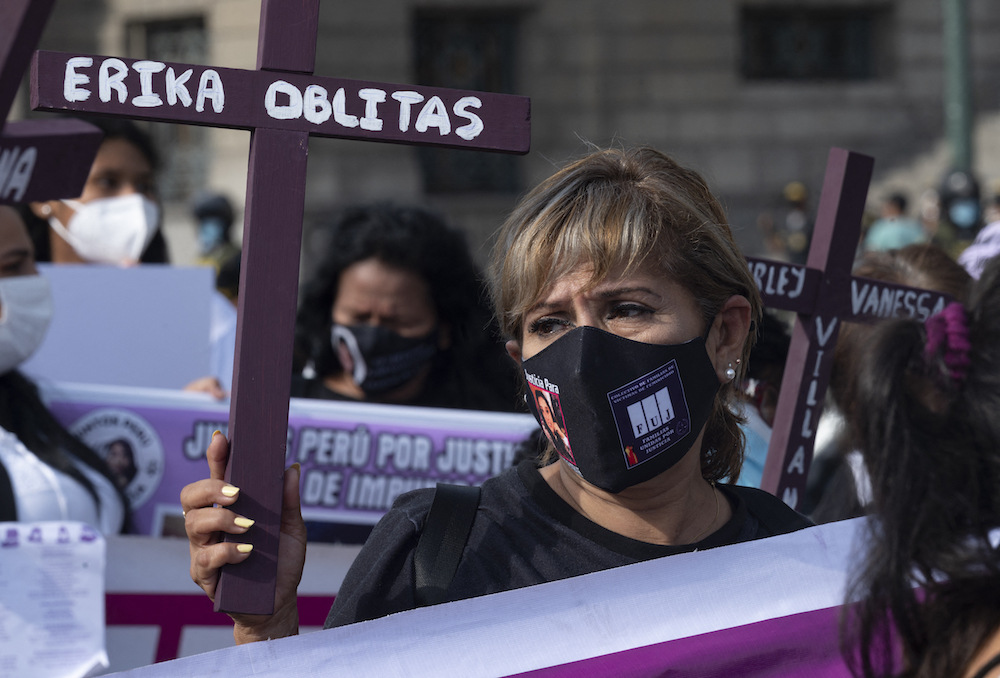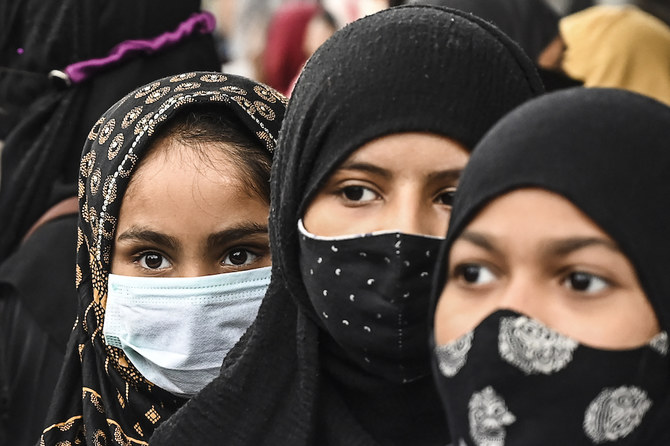NEW DELHI: When a group of Muslim girls at a school in a southern Indian state were barred from wearing the hijab in January, they staged a peaceful demonstration. Social media soon amplified their voices, igniting a nationwide debate over women’s rights.
The controversy began at a government-run secondary school in the Udupi district of Karnataka. Despite the protest, the local administration backed the school’s decision and issued an order in February that banned the wearing of the hijab and “clothes which disturbed peace” at educational institutions.
However, after social media users and news outlets picked up on the story, the small protest grew into larger public rallies, spilling over into other states, and quickly became a national issue. Petitions against the hijab ban have since been heard in the high court.
“The uproar on social media helped the news become global, focusing on the larger issue of the rights of Muslim women in this whole debate,” Hana Mohsin Khan, a Delhi-based commercial pilot and activist, told Arab News.
“In the hijab controversy, it is through social media that Muslim women found solidarity among people and right-thinking people. Because of social media, Muslim women found so much support.”

Students of government Pre-University college in Kundapur town wearing hijab arrive at their college in Udupi district in India’s Karnataka state. (AFP)
Social media platforms have provided an important forum for many women to share, raise their voices and communicate over a wide range of issues. In the process, it has created a more level playing field for women from different backgrounds and communities to participate in public debate, allowing them to organize and speak collectively.
Perhaps the strongest example of this in recent years is the #MeToo movement, which encouraged women worldwide to speak out about instances of everyday sexism and harassment, encouraging solidarity and emphasizing shared experiences.
Thanks to the growth of this new digital space, women’s movements have become far more inclusive and representative, strengthening the collective voice of disparate communities and clearing the way for social reforms.
Muslims make up about 12 percent of the population in Karnataka, where the vast majority of people are Hindu. Muslims and other religious minorities are often left feeling alienated by state regulations, which make it difficult for interfaith couples to marry and for people to convert to Islam or Christianity.
The hijab ban has been viewed by many as discriminatory.

After social media users and news outlets picked up on the story, the small protest grew into larger public rallies, spilling over into other states, and quickly became a national issue. (AFP)
“Muslim girls have been wearing hijab in this part of the state and it has never been an issue. Now, because of that, some girls who were in their final year had to miss their exams,” Aamna Kausar, a postgraduate student in Udupi, told Arab News.
“The fact that the issue took a political turn is largely due to social media. No doubt social media highlighted Muslim women’s fundamental rights.”
While social media is designed for engagement, it has become a potent tool for fostering civic participation.
For Shayma, a Muslim activist and doctoral student at Jawaharlal Nehru University in New Delhi, social media has provided a platform for those who would otherwise not have been heard.
“These kinds of small incidents have been happening on a smaller scale all the time, but this time women students found a way to break through their silence and put their voices forward, and the credit to a great extent goes to social media,” she said.

People take part in a demonstration against the gender violence in front of the Palace of Justice, in Lima Peru on March 5, 2022, ahead of the International Women’s Day celebrated on March 8. (AFP)
“Lots of people who are at the receiving end of the hijab controversy have been able to enunciate their issues.”
While women’s rights were the core of social media activism surrounding the hijab controversy, Nadeem Khan, co-founder of United Against Hate, a campaign group established by students, lawyers and intellectuals, told Arab News the issue has since grown into a debate over religious freedoms.
“The immediate attack was on the hijab, but, once the issue was raised on social media, the first question that was asked was about religious freedom,” he said.
“Social media highlighted the constitutional rights for practicing one’s faith, discrimination that is taking place against Muslim students in educational institutions and the issue of Muslim identity in India.”















